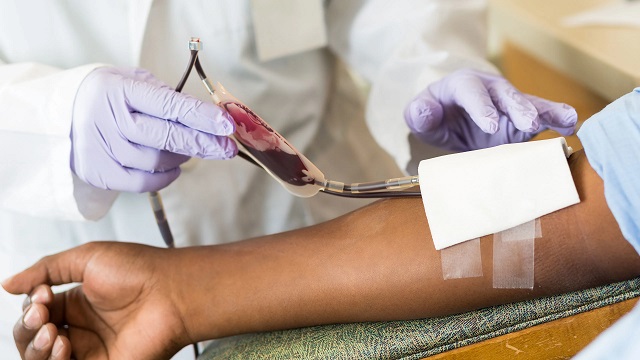
Kampala, Uganda | THE INDEPENDENT | The rate at which people in Africa are donating blood has decreased according to the World Health Organization.
Data from the UN health agency shows that blood donations in the region have fallen by 17 percent in the wake of the COVID-19 pandemic.
The drop in blood donations is being attributed to the COVID-19 pandemic and some of the measures put in place to forestall the spread of the disease like national lockdowns.
Due to the pandemic, the frequency of blood drives in the African region has dropped by 25% and demand for blood declined by 13%, with the suspension of routine surgeries in some countries and fewer people seeking care in health facilities. Around 7 million people need blood transfusion every year on the continent.
Dr Matshidiso Moeti, the WHO Regional Director for Africa says more blood needs to be donated because lack of blood can lead to loss of life.
“Disruptions to the steady supply of safe blood can be life threatening. We deeply appreciate the selfless, lifesaving gesture of blood donors and urge countries to set up and reinforce systems to increase voluntary blood donations,” she said.
Dr Moeti’s remarks came as the world commemorated World Blood Donor Day. This year’s theme was, “Give blood and keep the world beating,” to highlight the essential contribution blood donors make to save lives and improve the health of others.
In Uganda, an estimated 90,000 blood donors are registered in the country. However, since the pandemic struck last year, just over half of the registered donors were able to donate blood according to the Uganda Blood Transfusion Service. As such, in the last one year, shortages of blood have been experienced.
To stop shortages of blood, WHO in partnership with Facebook have set up a regional blood donations feature which connects people with nearby blood banks. The tool is now live in 12 countries and over 3.8 million Facebook users have signed up to be notified of blood donation opportunities.
*****
URN
 The Independent Uganda: You get the Truth we Pay the Price
The Independent Uganda: You get the Truth we Pay the Price



